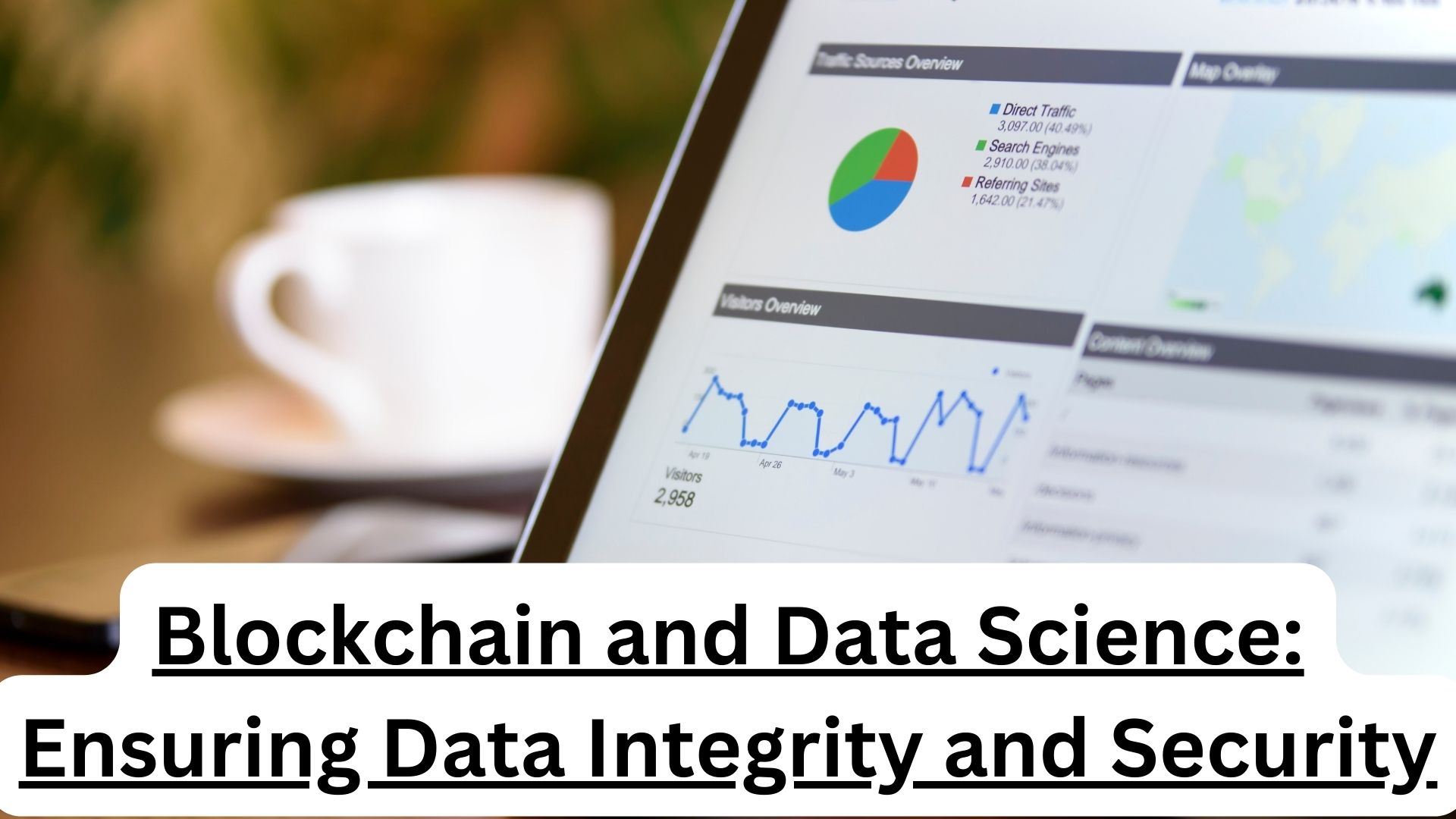How much coding is needed in a data science career?

Introduction
In today’s data-driven world, the field of data science has emerged as a crucial domain for extracting meaningful insights from vast amounts of data. At the core of data science lies coding, a fundamental skill that empowers professionals to manipulate, analyze, and interpret data effectively. Coding serves as the backbone for implementing algorithms, building models, and deriving actionable insights that drive business decisions across various industries.
The debate surrounding the necessity of coding in a data science career revolves around its role as both a tool and a foundational skill. While data scientists rely on coding languages to clean and preprocess data, perform statistical analysis, and develop machine learning models, the extent and complexity of coding skills required can vary based on job roles and industry demands. Understanding the spectrum of coding proficiency needed in data science is essential for aspiring professionals aiming to enter this dynamic field.
Fundamental Coding Skills
Fundamental coding skills form the bedrock of a successful data science career, enabling professionals to navigate through data complexities and derive meaningful insights. The primary programming languages essential for data science include Python, R, and SQL, each serving specific purposes in data manipulation, statistical analysis, and database querying.
Python stands out as the most widely used language in data science due to its versatility, readability, and extensive library support. Data scientists leverage Python for tasks ranging from data cleaning with libraries like Pandas to machine learning implementations using frameworks such as Scikit-Learn and TensorFlow. Its straightforward syntax and robust ecosystem make Python an ideal choice for both beginners and seasoned professionals in the field.
R excels in statistical computing and graphics, making it indispensable for data analysis and visualization tasks. Data scientists proficient in R can perform complex statistical modeling, create sophisticated visualizations with packages like ggplot2, and handle data preprocessing and manipulation efficiently.
SQL (Structured Query Language) is essential for querying and managing relational databases, enabling data scientists to retrieve and manipulate data stored in databases. Proficiency in SQL is crucial for accessing and integrating data from diverse sources, conducting exploratory data analysis, and preparing data for further analysis using statistical tools.
Understanding these fundamental coding skills equips data scientists with the necessary tools to handle data at every stage of the analysis pipeline, from data cleaning and preprocessing to model building and evaluation. Mastery of these languages forms the foundation for advancing into more complex coding techniques and specialized domains within data science.
Advanced Coding Techniques
As data science evolves, proficiency in advanced coding techniques becomes increasingly valuable for tackling complex analytical challenges and implementing sophisticated solutions. Beyond basic programming skills, data scientists often utilize advanced libraries, frameworks, and tools to enhance their analytical capabilities and drive actionable insights.
Advanced statistical libraries and frameworks such as NumPy and SciPy in Python provide powerful capabilities for numerical computations, scientific computing, and advanced statistical analysis. These libraries enable data scientists to perform matrix operations, optimize algorithms, and conduct hypothesis testing with efficiency and accuracy.
Machine learning algorithms play a pivotal role in data science applications, requiring proficiency in frameworks such as Scikit-Learn, TensorFlow, and PyTorch. These frameworks offer robust implementations of supervised and unsupervised learning algorithms, neural networks, and deep learning models. Data scientists leverage these tools to develop predictive models, perform feature engineering, and optimize model performance through hyperparameter tuning and cross-validation.
Data visualization is another critical aspect of data science that relies on advanced coding techniques for creating insightful and interactive visual representations of data. Libraries like Matplotlib and Seaborn in Python enable data scientists to generate customizable plots, histograms, heatmaps, and other visualizations that facilitate data exploration and communication of findings to stakeholders.
Moreover, proficiency in coding for data engineering tasks is essential for managing and processing large volumes of data efficiently. Data engineers utilize programming languages such as Java, Scala, and Python for building data pipelines, implementing ETL (Extract, Transform, Load) processes, and integrating data from disparate sources. Understanding these coding practices ensures data integrity, scalability, and reliability in data infrastructure.
Automation and Scalability
Coding skills in data science extend beyond data analysis and modeling to encompass automation and scalability of data processes. Data scientists and engineers leverage scripting languages like Python and Shell scripting to automate repetitive tasks, streamline workflows, and schedule data pipelines for regular updates and maintenance.
Cloud computing platforms such as AWS (Amazon Web Services), Google Cloud Platform, and Microsoft Azure provide scalable infrastructure for deploying data-intensive applications and managing big data analytics. Proficiency in coding for cloud environments involves configuring virtual machines, deploying containers with Docker, and utilizing serverless computing services like AWS Lambda or Google Cloud Functions for cost-effective and scalable data processing.
Furthermore, coding skills for scalability encompass parallel processing techniques and distributed computing frameworks such as Hadoop and Apache Spark. These frameworks enable data scientists to process and analyze massive datasets across distributed computing clusters, enhancing computational efficiency and reducing processing time for complex analytics tasks.
In summary, advanced coding techniques in data science empower professionals to tackle diverse challenges, from advanced statistical analysis and machine learning to scalable data processing and automation. Mastery of these techniques equips data scientists with the tools and expertise needed to drive innovation, solve complex problems, and deliver impactful insights in today’s data-driven landscape.
Industry Specifics and Job Roles
The coding requirements in data science vary significantly across industries and specific job roles within the field. In industries such as finance, healthcare, e-commerce, and telecommunications, data scientists utilize coding skills to extract actionable insights from large datasets, optimize business processes, and drive strategic decision-making.
In finance, for example, data scientists employ coding languages like Python and R to develop predictive models for risk management, fraud detection, and algorithmic trading. They utilize statistical techniques and machine learning algorithms to analyze financial data and forecast market trends with precision.
In healthcare, data scientists leverage coding skills to analyze electronic health records (EHRs), conduct clinical trials, and personalize patient treatment plans using predictive analytics and machine learning algorithms. Coding proficiency enables healthcare organizations to improve patient outcomes, reduce costs, and enhance operational efficiency through data-driven insights.
In e-commerce, data scientists rely on coding for customer segmentation, personalized recommendations, and demand forecasting. They use Python and SQL to analyze customer behavior, optimize marketing campaigns, and enhance user experience through data-driven strategies.
Telecommunications companies harness coding skills to analyze network traffic, optimize bandwidth allocation, and predict equipment failures through predictive maintenance models. By utilizing programming languages and data analysis tools, data scientists in telecommunications drive operational efficiencies and improve service delivery.
Balance with Other Skills
While coding proficiency is essential in data science, success in the field requires a balanced skill set that includes domain knowledge, statistical reasoning, and communication skills. Data scientists must possess a deep understanding of the industry they operate in, allowing them to ask relevant questions, identify meaningful insights, and translate data findings into actionable recommendations for stakeholders.
Effective communication skills are crucial for data scientists to convey complex technical concepts and analytical results to non-technical audiences, including executives, managers, and clients. The ability to visualize data effectively using dashboards, reports, and presentations enhances the impact of data-driven insights and facilitates informed decision-making across organizations.
Moreover, collaboration and teamwork are essential in data science projects that involve interdisciplinary teams comprising data engineers, analysts, and business stakeholders. Data scientists must collaborate effectively, share insights, and work towards common objectives to achieve project goals and deliver value to the organization.
By balancing coding proficiency with domain knowledge, statistical reasoning, communication skills, and teamwork, data scientists can maximize their impact in the field and leverage opportunities for professional growth. Pursuing specialized training, such as a Data Science course in Delhi, Noida, surat, etc, can further enhance these skills and prepare individuals for successful careers in the dynamic and evolving field of data science.
Conclusion
In conclusion, coding skills are indispensable in a data science career, enabling professionals to harness the power of data for strategic decision-making across various industries. Mastery of coding languages like Python, R, SQL, and advanced techniques such as machine learning and cloud computing is essential for analyzing large datasets, developing predictive models, and automating data processes. Balancing technical expertise with domain knowledge, communication skills, and collaboration enhances the effectiveness of data scientists in driving innovation and solving complex business challenges. Consider pursuing a Data Science course in Delhi, Noida, Bangalore, patna, kochi, etc, to deepen your coding proficiency and prepare for a successful career in this rapidly growing field.




